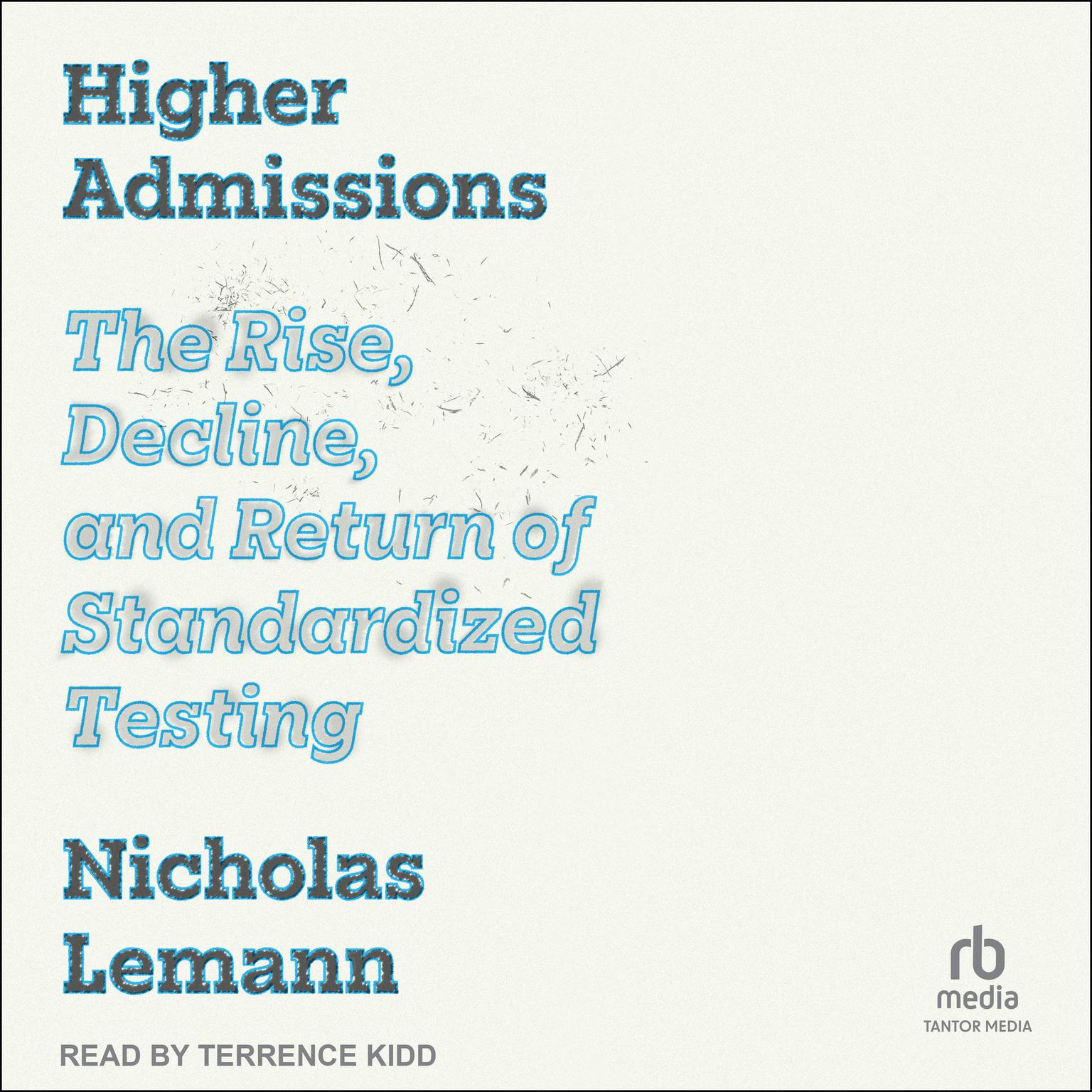 Play Audiobook Sample
Play Audiobook Sample
Higher Admissions: The Rise and Fall of Standardized Testing Audiobook
 Play Audiobook Sample
Play Audiobook Sample
Quick Stats About this Audiobook
Total Audiobook Chapters:
Longest Chapter Length:
Shortest Chapter Length:
Average Chapter Length:
Audiobooks by this Author:
Publisher Description
In the 1930s, American colleges and universities began to screen applications using the SAT, a mass-administered, IQ-descended standardized test. The widespread adoption of the test accompanied the development of the world's first mass higher education system—and served to promote the idea that the United States was becoming a "meritocracy." In Higher Admissions, Nicholas Lemann reflects on the state of America's aspirational meritocracy and the enduring value and meaning of standardized testing.
Lemann writes that the anticipation of the Supreme Court's 2023 decision banning affirmative action, plus the Covid pandemic, led hundreds of universities to stop requiring standardized admissions tests; now a handful of elite universities are reinstituting test requirements. The country is preoccupied with the admissions policies of the most selective universities, but Lemann redirects our attention to an alternate path that American higher education can still take—one that emphasizes a significant upgrade of the entire higher education system. Lemann argues that to improve the state of higher education overall, we should focus not on the narrow chokepoint of admission to highly selective colleges, but on efforts to create as much meaningful opportunity for flourishing in our vast higher education system for as many people as possible.
Download and start listening now!
Higher Admissions Listener Reviews
Be the first to write a review about this audiobook!
About Nicholas Lemann
Nicholas Lemann, dean of the School of Journalism at Columbia University, is the author of The Big Test (FSG, 1999) and the prizewinning The Promised Land. He lives with his family in Pelham, New York.





